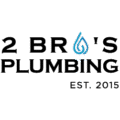Surely, we can all agree that maintaining a strong sense of personal hygiene is vital for overall health. As a result, the bathroom is commonly used as the location of the home where we work to keep our bodies clean. Knowing this, numerous companies market their products as those that are excellent for cleaning. In some cases, however, they’re also marketed as being easy to dispose of in the toilet.
“Flushable wipes” are advertised as a premium upgrade to toilet paper. They promise cleanliness, comfort and convenience. However, beneath the soft-sounding label lies a growing plumbing and environmental headache. Flushable wipes should NOT be flushed down the toilet. Doing so can be very damaging to your plumbing.
Wet wipes first gained popularity in the 2000s.
They were marketing for such uses as baby care, cleaning and sanitation. Wet wipe manufacturers caught on to a concern about disposal and began introducing “flushable” variants for personal hygiene. Despite their name, these wipes don’t safely dissolve like toilet paper. Paper disintegrates within minutes. However, flushable wipes take hours, days or even longer to break down. This is because they are made of cellulose blended with synthetic fibres.
As reported by Ecojustice, a 2019 Ryerson University study of over 100 products found that all items except toilet paper failed to pass tests for drain line clearance and disintegration. “‘Flushable’ wipes lead to putrid sewage clogs and can form the core of fatbergs, large masses of solid waste consisting of congealed fat and personal care products that block pipes and cause flooding,” reveals their website.
The term “flushable” isn’t strictly regulated.
Unfortunately, many products break the rules of plumbing systems despite the label. As noted, wipes build up in pipes, causing stubborn clogs. In septic systems, they may require more frequent pumping. This, of course, only increases household costs. Even if wipes pass home plumbing undetected, they wreak havoc at treatment plants, clogging machinery and slowing operations. Ultimately, this hikes utility bills.
As previously mentioned, when wipes mix with fats, oils, grease and debris, they form concrete-like blockages called fatbergs. These monstrous masses have clogged sewers globally. Some of them have even spanned the length of football fields, requiring costly, multi‑month removals. “‘Flushable’ wipes add at least $250 million dollars in additional repairs and maintenance each year to municipal sewer systems in Canada,” points out Ecojustice.
What cleaning alternatives should be used in the bathroom?
Firstly, stick with toilet paper! It’s engineered to dissolve quickly and safely. Alternatively, you may wish to install a bidet or bidet attachments. They are gaining popularity for comfort and hygiene. Naturally, they also help to reduce paper waste. Although flushable wipes may offer an undeniable convenience, evidence shows that convenience coming at a high cost to your plumbing, wallet and the environment.
Have you clogged your toilet?
At 2 Bro’s Plumbing, we’ve been helping homes across the Durham Region with reliable, efficient toilet repairs and installations since 2015. From slow-filling tanks to leaks and constant running, our skilled plumbers can diagnose and repair any issue or help you choose and install a new toilet for your bathroom. Our family-owned company takes pride in offering honest, high-quality service and building strong relationships with our customers.
Please don’t hesitate to give us a call at 905-556-0790 or email us at admin@2brosplumbing.ca today to get your toilet fixed right!



